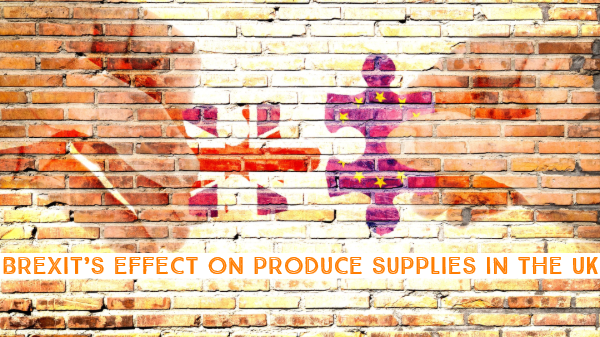There are always opportunities, but there are probably no gaping holes for U.S. produce to fill.
To understand why, let’s recap what Brexit is. It is the withdrawal of the United Kingdom from the European Union (EU). Among other provisions, EU member nations—which include almost all of Europe (Switzerland and Norway are exceptions)—trade among each other duty-free. Their citizens are also guaranteed free movement across national boundaries.
This last provision aroused great concern in Britain, especially about the number of immigrants from Eastern Europe. In June 2016 the British people voted on a referendum to decide whether the nation would leave or stay in the union. A narrow majority (52 percent) voted to leave.
The referendum did not determine exactly how the British exit from the EU (hence “Brexit”) would take place. Nor has the British government been able to agree with the EU about the terms of its departure up to now.
If no agreement is reached, Prime Minister Boris Johnson is pressing for a no-deal Brexit—that is, the nation will simply leave the union without making provisions for trade or immigration. The deadline for this is October 31, but he is facing heavy resistance from many, including members of his own Conservative Party.
How does this affect the produce industry? Without a Brexit deal, tariffs would go into effect upon fruits and vegetables from other European countries. Britain depends heavily on other member nations for these, importing “huge amounts from continental Europe,” as John Giles, regional director at Promar International, an agricultural market research firm, puts it.

The Produce Marketing Association (PMA) BB #:153708 reports that in 2016, “The UK imported 10.3 billion euros ($11.4 billion . . .) of fruits and vegetables, the country’s largest food import category by value. UK exports of fruit and vegetables sat at just 1.1 billion euros, creating a 9.2 billion euro trade deficit.”
The situation is uncertain but not dire. Very likely supply chains will be disrupted in the short term. As for tariffs, with a no-deal Brexit, as Giles points out, World Trade Organization tariffs would go into effect, which amount to some 10-15 percent on fruits and vegetables. Giles also estimates an additional 5-8 cost increase as a result of “transactional charges” such as “additional paperwork, delays at the port, and changes in sanitary regulations.”
This doesn’t give much opportunity for American shippers, because American produce is already subject to these duties. A no-deal Brexit would simply level the balance.
There is also the exchange rate. At this writing, the British pound is extremely weak against the dollar (partly as a consequence of Brexit fears), trading at $1.25. This makes American produce comparatively expensive.
Furthermore, Brexit won’t stop British imports from Europe. European exporters have had long relationships with their British customers, and Brexit will not make these relationships vanish. Furthermore, for the last three years everyone has known Brexit was coming, so the industry has had ample time to prepare. European exporters also know their customers in a way that an American company just entering the market doesn’t. One further issue to face, says Giles, is that “British supermarkets are technically very demanding of their suppliers.”
Nor is the U.S. the only alternative supply of produce. Chile and Peru are in an excellent position to take advantage of any gaps created by Brexit.
“Chile and Peru have done their negotiations with the UK,” says Giles. “Their tariffs will be unchanged. This is typical of Chile and Peru: they have been really good at negotiating free-trade agreements. They’ve been one step ahead of the game.”
In a 2018 report, the PMA said, “Morocco and Egypt are increasing output of tomatoes and oranges, respectively, and both countries currently export significant amounts to the UK. Additionally, apple production in the UK has rebounded over the last ten years and has consequently reduced imports. So, if the UK wishes to decrease its dependence on certain EU fruit imports, there are opportunities to do so.” The Guardian newspaper reported that 38 percent of retailers expected to have more imports from Africa, including South Africa and Kenya.
Nevertheless, the U.S. does send produce over to Britain. “We quite like American fruit,” says Giles. Historically, the U.S. has sent over “apples, grapefruit, grapes, strawberries, dried nuts,” he adds, “sometimes at significant volumes.”
Giles’s overall impression is that up to this point, U.S. exporters have shown more interest in Asian markets such as Indonesia, Malaysia, and China than in the U.K. Of course, at this point trade disputes with Asian nations have thrown some of this into question.
Giles’s main advice to American shippers to think of Britain in terms of long-range strategy.
The first question is, “Are they prepared to commit to the U.K. market?” They should also ask themselves, “Will I be able to compete through the good times and the bad times? The basic question is,” he goes on to say, “have I got a customer that I can supply on a consistent and competitive basis? How many resources do I have in my business to deal with a very demanding market?”



